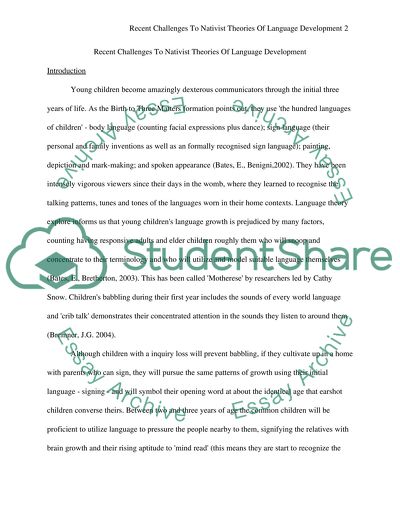Cite this document
(“Nativist Theories Of Language Development Essay”, n.d.)
Retrieved from https://studentshare.org/education/1531133-nativist-theories-of-language-development
Retrieved from https://studentshare.org/education/1531133-nativist-theories-of-language-development
(Nativist Theories Of Language Development Essay)
https://studentshare.org/education/1531133-nativist-theories-of-language-development.
https://studentshare.org/education/1531133-nativist-theories-of-language-development.
“Nativist Theories Of Language Development Essay”, n.d. https://studentshare.org/education/1531133-nativist-theories-of-language-development.


